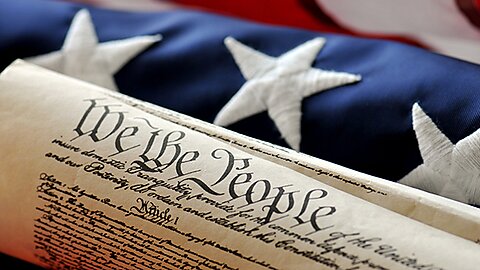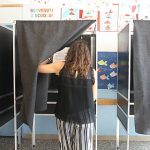
Walter Olson
Section 3 of the Fourteenth Amendment prohibits anyone who has previously taken an oath of office (that is, most current and former public officials) from holding public office if they have “engaged in insurrection or rebellion” against the United States. That raises the question of whether any of the persons who took part in unlawful efforts to block the transition of presidential office in January 2021—and if so, which ones—might be barred from future office. It also raises the question of who decides on the disqualification: the state officials who list candidates’ names on the ballot? Other officials charged with gatekeeping, such as legislative bodies in charge of accepting member credentials? Or only the courts? And if so, can they weigh the evidence on their own, or do they need to wait until there has been some previous kind of ruling that the former official engaged in insurrection?
In a social media exchange last year, I was incautiously dismissive of attempts to disqualify candidates on this ground, saying most of them struck me as “performative long‐shot complaints that stand little chance of success, and zero chance if based merely on bad talk.”
Like many others, accordingly, I was a bit shaken by the impressive article by two respected originalist legal scholars, William Baude and Michael Stokes Paulsen, making the case that Section 3 is very much a live thing and should be interpreted to disqualify candidates up to and including Donald Trump. (Arkansas Governor Asa Hutchinson brought up that question at Thursday’s Republican debate.) Among the points they make:
The original understanding of the definition of “insurrection or rebellion” was more sweeping than I had assumed, and crucially includes some broad classes of behavior that we would see as aiding, abetting, or even counseling miscreants, far from any front lines. It is by no means limited to, say, taking part in violent clashes.
Section 3 fell into decay following an appellate level decision called Griffin’s Case, written by Supreme Court Chief Justice Salmon Chase (though it was not a Supreme Court opinion). Chase interpreted the section as not “self‐executing” in the absence of some prior proceeding or implementing legislation designating who exactly came under its restrictions. Baude and Paulsen make a strong case, however, that Griffin’s Case was in all likelihood wrongly decided and at odds with a sound understanding of the text of the Amendment, which had been ratified just one year before. It was part of a series of moves by which various governmental actors, the federal courts among them, gutted some of the most ambitious achievements of the Radical Republicans in Congress.
Contrary to what is sometimes asserted, successive amnesties declared by Congress in 1872 and 1898 affected only persons subject to disqualification at that time, and could not prospectively immunize persons whose later behavior brought them under the law.
Since January 2021, litigation seeking to disqualify candidates based on their conduct then has made clear that the law is not somehow a dead letter. New Mexico removed a county commissioner from office, one member of Congress was found covered by an appeals court but lost his seat in a primary resulting in the mooting of the case; another member of Congress won a ruling that she had not been factually shown to have engaged in covered conduct, which is distinct from any notion that the law wouldn’t have applied if she had.
Other legal scholars have weighed in, with Steven Calabresi applauding Baude and Paulsen’s work, and Michael McConnell urging extreme caution. McConnell notes that the article’s interpretation would place into the hands of secretaries of state and other officials a power over democratic choice—whether to exclude from the ballot the leader of the opposition party—that would be hard for the best of them to use impartially, and would be open to the most dangerous sorts of misuse.
This is not the time or place to assess the Baude‐Paulsen argument as a whole, so I will content myself with making two quick points.
First, since it is likely that Donald Trump will face some vigorous efforts to disqualify him under the Amendment, it is greatly in the nation’s interest that the question be resolved in a rapid and nationally uniform way. That will almost certainly require a speedy trip up to the U.S. Supreme Court. Professor Ned Foley has outlined how this could happen. If and as local officials move to disqualify, the courts will inevitably backstop that determination. We need certainty long in advance of the scheduled general election.
Second, no one should assume that just because Baude and Paulsen have made a powerful intellectual case for their originalist reading, that the Supreme Court will declare itself convinced and disqualify Trump. Justice Antonin Scalia memorably described himself as a “faint‐hearted originalist,” which captures something important about the thinking of almost every Justice—if overruling a wrongly decided old case threatens to disrupt settled expectations to the point of spreading chaos and grief through society, most of them will refrain. Stare decisis, and a general preference for continuity in law, still matters.





